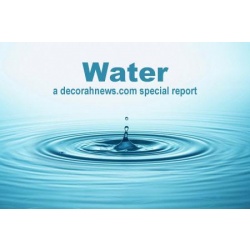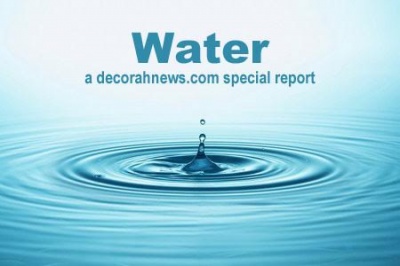
Water: a decorahnews.com special report
The debate over water quality in Iowa is quickly becoming divided between rural and urban groups.
In regards to Des Moines Water Works' lawsuit against three Iowa counties, Governor Terry Branstad said in January that "Des Moines has declared war on rural Iowa."
Des Moines Water Works CEO Bill Stowe, who some critics have accused as being an egotist, said that the future of water quality must be a collective effort between rural and urban groups, and divisive rhetoric does more harm than good.
"It's tribalism," Stowe said. "It's an attempt to divide us into separate entities, but rural Iowa is no less thirsty than we are. Our customers come from both spheres. I think to say that is tossing red meat to the people who don't want us to be doing what we are doing."
Water monitoring at 72 sample sites in Buena Vsta, Sac and Calhoun counties has shown nitrate levels in the Raccoon River to be four times higher than the federally required drinking water standard. Des Moines Water Works says they have spent well over $1 million treating this water in 2015, and figure to invest an additional $75 million in new denitrification technology in order to continue to providing safe drinking water to customers.
Last session, the Iowa legislature committed $9.6 million to conservation efforts and water quality initiatives such as the Iowa Nutrient Reduction Strategy, but Stowe says that, in the future, conservation efforts should not be voluntary.
"There are a lot of people involved with agriculture that have done some real good for conservation," Stowe said. "The thing is, environmental protection is really consumer protection and the waters of this state are continuing to be damaged by people who are unaccountable."
Although acknowledging not all agriculture is to blame for Iowa's water issues, Stowe maintains that public money should not be used to remedy the nitrate issue in the Raccoon River.
"We believe this a problem for our ratepayers," Stowe said. "We're really not here for publicity or to set an environmental precedent. We're doing this because 500,000 Iowans who use our utility are going to have to incur the cost to remove these nutrients."
Site designed and maintained by Iroc Web Design Services©.
Your Small Business Web Design Solutions.™


